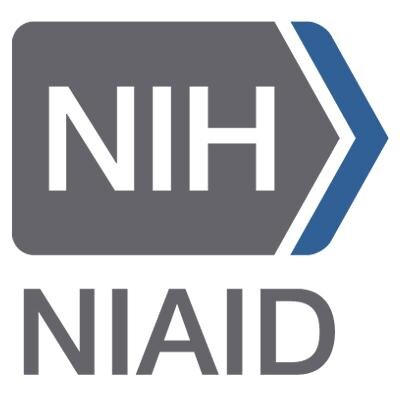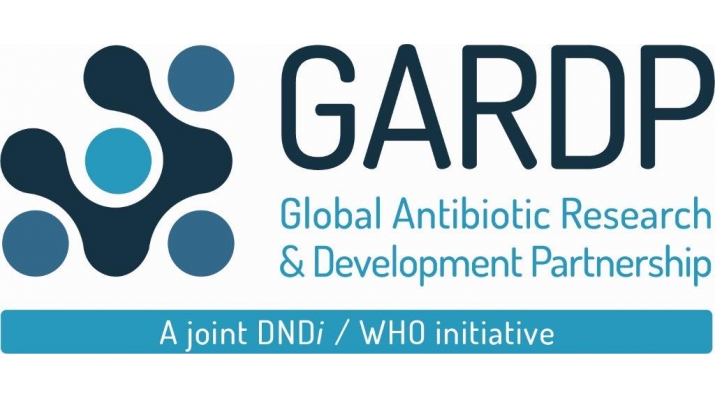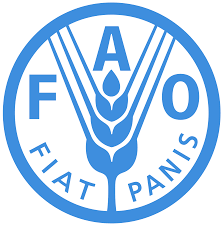Collaborations
ICMR- Research Council Norway Collaboration | [Top ]

During the visit of Hon’ble President Pranab Mukherjee to Norway in October, 2014 an MoU for co-operation between Indian Council for Medical Research (ICMR) and the Research Council of Norway (RCN) was signed by India Ambassador to Norway Norman Anil Kumar Browne and Arvid Hallen, Director General of RCN. This cooperation seeks to establish a health research relationship for encouraging research in a range of health-related areas of mutual interest, including human vaccines, infectious diseases and antimicrobial resistance. The agreement shall promote direct cooperation within the field being organized through joint calls and funding for research proposals/projects as well as facilitating exchange of scientists and scientific information.
RESEARCH AREAS FOR COLLABORATION
September 2013 Workshop report:
https://en.uit.no/prosjekter/prosjekt?p_document_id=352354
Document:
November 10th-11th, 2016 Indo-Norway Workshop on AMR: Workshop report
INDONOR Call for proposals under IndoNorwegian Co-operation on AMR: Brief of selected projects
ICMR-FIND Collaboration | [Top ]

Irrational antibiotic prescribing practices contribute to both antimicrobial resistance (AMR) and ineffective management of febrile illnesses, generating avoidable morbidity and mortality. Improving this situation requires appropriate diagnostics and reliable algorithms to help the healthcare provider establish the correct diagnosis and prescribe the appropriate treatment, along with changes to prescriber’s and patient’s behavior. While development of new diagnostics is ongoing, there remains no clear path to deployment once they have been developed. ICMR and FIND collaborated on AMR Diagnostics Use Accelerator to stimulate the studies to address the effect of innovative clinical algorithms using existing diagnostic tools and to inform research into the design with behavior change initiatives, to encourage policy change. The outcomes of these studies can inform the rapid evaluation and incorporation into decision making algorithms of new diagnostic tools as they become available.
ICMR/AIIMS/CDC Global Health Security Agenda Collaborative Project | [Top ]
ICMR/AIIMS/CDC Global Health Security Agenda Collaborative Project: Capacity Building and Strengthening of Hospital Infection Control to Detect and Prevent Antimicrobial Resistance in India

Preventing antimicrobial resistance (AMR) is a critical public health priority globally. Compounding the threat of AMR, healthcare associated infections (HAIs) further contribute to adverse patient outcomes, increased cost of treatment, morbidity, and mortality. Effective systems, policies, and procedures to accurately detect, monitor, and prevent AMR and HAIs are thus essential. The Government of India (GOI) has placed high priority on combatting antimicrobial resistance (AMR), and the Ministry of Health and Family Welfare has taken a leadership role in addressing AMR as part of the Global Health Security Agenda (GHSA).
In September 2015, ICMR, the All India Institute of Medical Sciences (AIIMS) and the U.S. Centers for Disease Control and Prevention (CDC) initiated a collaboration through the GHSA platform to leverage the existing ICMR AMR network to further strengthen, standardize, and expand capacity of the public health and healthcare systems in India to generate, apply and report accurate AMR data, implement appropriate infection control procedures, enhance antimicrobial stewardship practices, and strengthen routine hospital-based surveillance for HAIs. These activities serve the need for reliable AMR data to support successful patient care, and the public health need to measure, track and report the magnitude of types of AMR threats affecting India. In addition, the clinical aspects of this project will assess and strengthen both clinical antimicrobial use practices and infection control capacities for containment of AMR pathogens. Together, these activities will advance India’s capacity to detect and prevent AMR in a sustainable way.
The specific objectives of the ICMR/AIIMS/CDC collaboration are:
ICMR/AIIMS/CDC GHSA collaboration will build on this progress, with focused efforts intended to advance and expand laboratory, surveillance, and workforce capacities to effectively detect, prevent, and respond to the threat of AMR in a sustainable manner.
ICMR-NIH collaboration | [Top ]

ICMR signed a letter of Intent with NIAID, NIH, USA to collaborate on research on antimicrobial resistance in June2015. This collaboration will focus on systems biology approach to understand the transmission dynamics of drug resistant infections and improve our understanding the molecular mechanisms that occur in pathogens and evolution of strains resistant to develop improved therapeutics and rapid, accurate and easy to use diagnostics for treatment of patients. Emerging genomics technologies, systems biology approaches and bioinformatics capabilities provide opportunities to generate novel data sets that identify changes in molecular composition of the pathogen and their associated genetic elements and plasmids, alterations in the pathogen-host pathways and other factors such as strain fitness as the pathogen develops resistance and selective advantage over other strains.
ICMR-GARDP collaboration | [Top ]

GARDP is platform for both public and private sectors so that actions can be accelerated in AMR domain. GARDP goal is to deliver 5 treatments by 2025 in 4 areas i.e. Serious Bacterial Infections, developing new antibiotics for children with particularly focus on Neonatal sepsis and sexually-transmitted Infections (one project is in Phase 3). GARDP Strategic Pillars are (i) research & Development (ii) Public health-oriented portfolio & partnerships and (iii) Sustainable access. GARDP has funding of 500€million to accelerate development and delivery of 5 new treatments that address the most pressing public health needs. GARDP’s main focus is on developing new and improved treatments in late stage clinical development and ensuring sustainable access using two strategies. The first strategy is to repurpose and optimize use of old antibiotics and second is to accelerate development of new antibiotics. GARDP’s governance and scientific mechanisms is reviewing the pipeline and discussing potential candidates to work on. The discovery & exploratory programme identifies new and under-exploited targets to translate into treatments for drug-resistant infections. Currently evaluating 3-4 potential assets are in pipeline. https://gardp.org/
ICMR has an MoU with Global Antibiotic Research and Development Partnership to work towards development of new drugs to handle antimicrobial resistance crisis in India.
ICMR-BMBF Indo-German Cooperation in Health Research | [Top ]

According to the WHO report, 2017, world is running out of antibiotics and the antibacterial clinical development pipeline shows a serious lack of new antibiotics. There is a global urgency for AMR research due to huge knowledge gap in host-pathogen interactions and an urgent need for new drugs. Indian Council for Medical Research (ICMR) has collaborated with the Federal Ministry of Education and Research (BMBF), Germany in order to strengthen and expand the basic research activities in Antimicrobial resistance (AMR) as part of Global initiatives in AMR.
ICMR and BMBF jointly organized Indo-German Cooperation in Health Research workshop on “Prophylaxis and Therapy in Antibiotic Resistance” on 18th and 19th January, 2018 at ICMR headquarters, as an effort to strengthen basic research in AMR. The participants included key scientists working in varied fields like immunology, molecular biology, epidemiology, drug design and genetics of infectious diseases from India and Germany. ICMR-BMBF collaborative AMR research will focus on key areas like mechanism of resistance, understanding pathogens, host responses, immunomodulation, vaccination and new antibiotic development and treatment strategies
ICMR-Pfizer collaboration | [Top ]

New Delhi, November 13, 2017: Indian Council of Medical Research (ICMR) and Pfizer Ltd. will institute a ‘Centre to Combat Antimicrobial Resistance’ in New Delhi, as part of the MoU signed recently. This project will help address the growing threat of antimicrobial resistance in India. The joint initiative will implement a series of comprehensive interventions, ranging from AMR Stewardship programs for Nursing Homes to scaling up of the ongoing AMR surveillance network and creating awareness around responsible use of antibiotics.
ICMR-ICAR-FAO Collaboration | [Top ]

Antimicrobial use in animals and its impact on human health is of immense public health concern. There are lot of gaps in understanding the exact impact of antimicrobial use in animals on human health which is mainly due to absence of comprehensive surveillance system at national level. The government of India has also highlighted the absence of stringently framed regulatory frameworks in country to limit the use of antimicrobials in livestock and food animals. Recognizing the continued emergence of new bacterial pathogens in animals that are resistant to antimicrobials considered critically important for human therapy in India, there is good reason to further strengthen efforts to prevent, detect and control the emergence and spread of resistance from animals to humans.
Indian Council of Medical Research (ICMR) in collaboration with Indian Council of Agricultural Research (ICAR) has initiated a Food and Agricultural Organization (FAO) funded project entitled “To build capacity for integrated surveillance of antimicrobial resistance (AMR) in pathogen / commensals in food producing animals, food of animal origin and their environment and foodborne pathogens in humans”.
The project envisaged to engage with the veterinary microbiologists, understand the gaps in the antimicrobial susceptibility testing and fill those gaps by carrying out capacity building activities using the standardized methodology. The main objectives of the project were to develop standard operating procedures for antimicrobial susceptibility testing for veterinary microbiology labs, and identify available capacities and the gap areas in selected labs. Eight veterinary Institutes/Universities identified by ICAR to participated in this project. This project was one of its kind to initiate the “One Health” concept that will enable understanding of interdependencies and links between the three health systems of animals, humans and the environment in Indian context. Information on the availability of veterinary microbiologists, laboratory capacities, the type of samples being tested and the organisms being tested for AST was collected through a FAO based questionnaire. Assessments of veterinary Institutes/ laboratories were carried out for already available capacities and for identification of the gap areas. This is first step to develop and strengthen the laboratory capacity for AMR surveillance.
> Standard Operating Procedures Bacteriology for Veterinary Sector